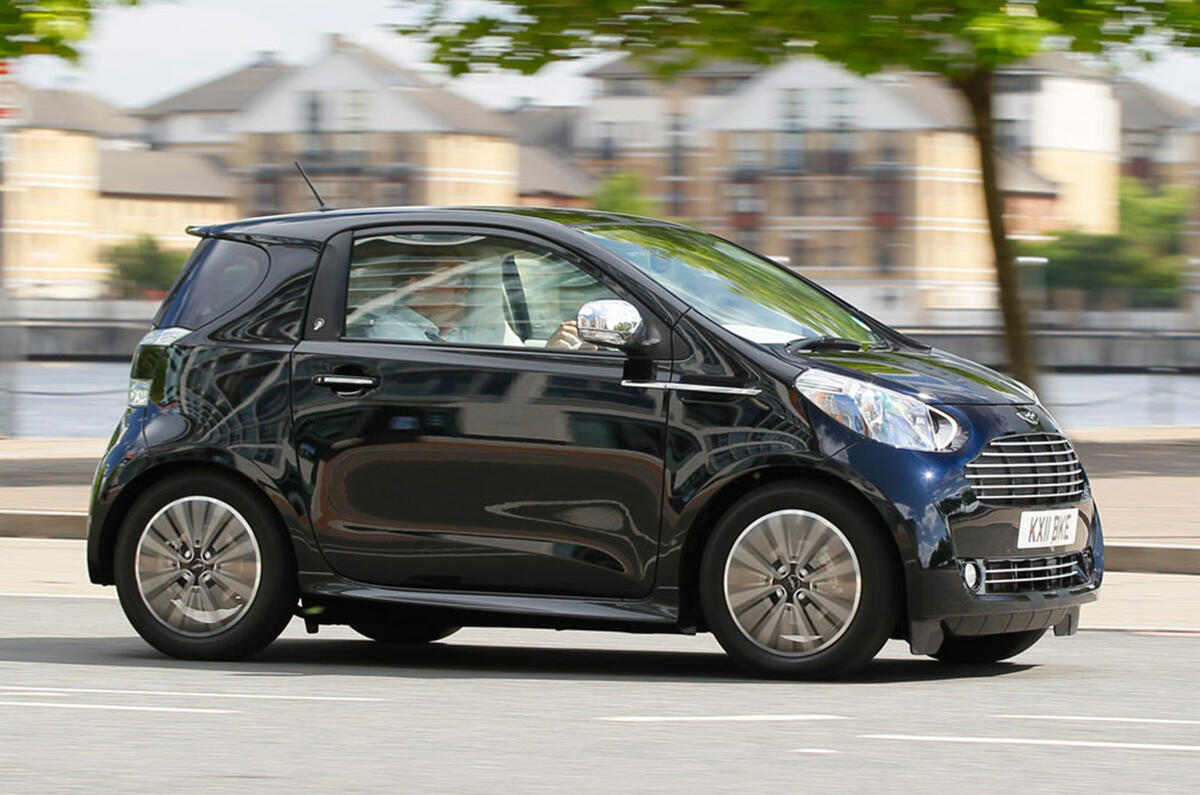Remember the Aston Martin Cygnet? Launched in 2011, the quirky three-seater cost more than £30,000, marketeers judging that a new, fancier badge, a minor restyle and some luxurious interior appointments made it worth somewhere between twice and three times the price of the Toyota iQ it was almost entirely based on.
In 2013, production of the Cygnet officially ceased after fewer than 150 cars had been made. Critics had a field day, car spotters had a new unicorn to look out for and the world moved on.
Except today, there are niggling pangs that Aston’s CEO at the time, Ulrich Bez, and his team might have been on to something. Was the much-derided Cygnet in fact the right car at the wrong time? Or, perhaps, to show some benefit of hindsight, the right concept, wrongly executed at the wrong time? And, if so, are we about to see someone else have a go at cracking the luxury or premium city car market a decade later?
Possibly. High-volume, low-profit small cars have rarely held any appeal for luxury, premium or fast car makers, but it could be that now – during this once-in-120-years transition – they won’t have a choice. Now, they must drive down average emissions or face huge, profit-eating fines.
Plug-in hybrid technology will help meet targets initially, but eventually everyone will need to sell a fully electric car to be compliant. If EV tech doesn’t develop fast (or cheaply) enough to deliver the sort of performance – be it speed, dynamics or range – traditional customers expect, there is a risk that car makers at the rarefied end of the market could be left hanging.
Maybe – just maybe – the answer lies not in trying to bastardise core offerings at great expense to meet regulations, but rather in risking the launch of radical new products using off-the-shelf technology produced by a mass (and potentially related) manufacturer only too happy to recoup some of the development costs, Cygnet style.
Maybe a £70k baby Bentley sat on VW’s MEB platform – which underpins the ID 3 – is stretching things, but there is appeal. It would presumably be profitable from the off, futuristic in execution and draw in a younger demographic of buyers, for starters. Or how about a £100k city-biased SUV, based on a BMW i3’s underpinnings but wearing a Rolls-Royce badge? Perhaps the Cygnet could be reborn, but now based on the Smart Fortwo?
I’ll leave you to play out more flights of fancy. But if anyone rolls the dice, save another footnote in history for Bez, Aston Martin and the Cygnet.
READ MORE
Saying goodbye to the Aston Martin Cygnet




Join the debate
Add your comment
Production numbers
Autocar, your spam rules are
Autocar, your spam rules are a complete disaster. It took me 3 revisions to make my above post acceptable. Apparently, your rules didn't like that I used quotation marks. How is it that quotes means spam??? There are no embedded links! Yet we still see numerous spam posts, such as work from home and make zillions every month, getting through.
Better still, it rejected this post about spam!
Please publish posting rules
I too have had difficulties in the past trying to post comments which have been rejected for inexplicable reasons and for which no amount of editing has been able to resolve. I can understand perhaps certain words being rejected but do the algorithms reject certain keyboard characters? It would be helpful to have an email address for the moderator. Thanks
The Cygnet was and is utterly
The Cygnet was and is utterly appalling. To retrim a tiny Toyota and slap Aston Martin badges and an Aston Martin grille is reprehensible. It's an insult to a great marque. It takes more than that to make an Aston Martin. It's just as abhorent as it would be had Ferrari taken an iQ, retrimmed it and stuck Ferrari badges and its grille on the thing. The iQ is great at what it is, but to try to make it an Aston Martin is a great way to try and destroy a marque. It's collectible (sort of) now only because it was a complete commercial failure (rightly), resulting in few being made. Hopefully it's a lesson learned and never to be repeated.